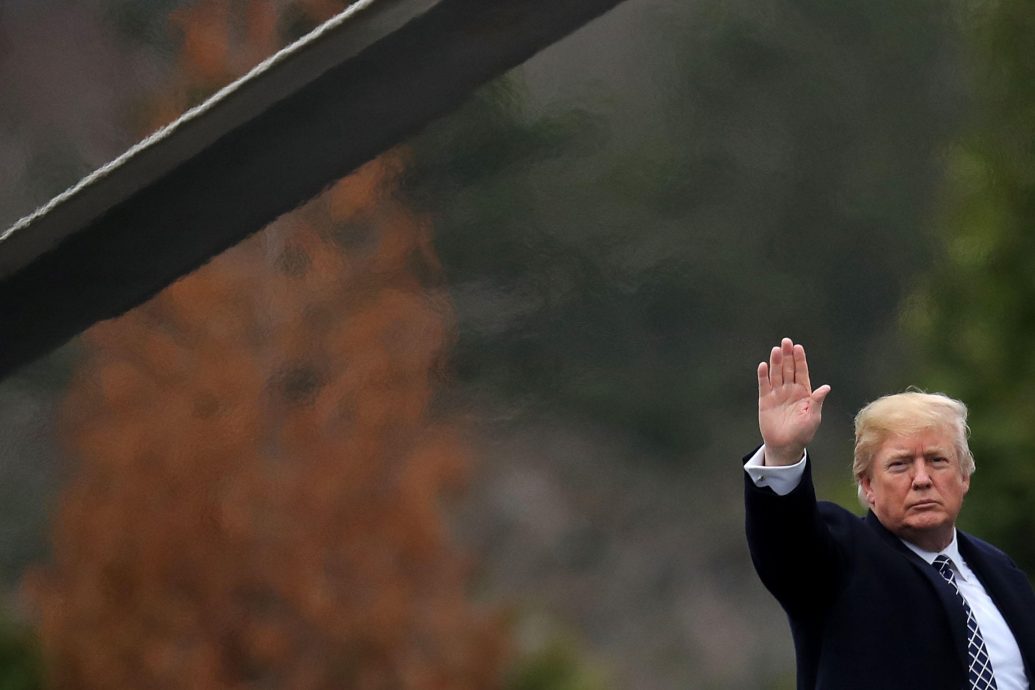Conservatism has hope because many ordinary people are still proud to be patriots, and some remain stalwart people of faith.
Trump Should Be Assessed Politically, Not Psychologically
Several of my American friends and acquaintances voted for Donald Trump, though none would praise his character. To the contrary, they would describe him as vain and vulgar, crude, crass and coarse, untruthful and ill-informed, self-regarding and self-promoting, dishonorable in his business dealings, brittle, humorless and intellectually shallow. It must speak volumes for the quality of his opponent, then, that intelligent and cultivated people should have been prepared to vote for such a person, but such was the case.
They all considered the possibility that his was merely an act and that in reality he was very different from how he presented himself in public: that in reality (and in private) he was kind, considerate and deeply thoughtful. If so, however, he was one of the great actors of the past hundred years; and for myself I find it difficult to believe that anyone could adopt facial expressions such as his without extraordinary thespian genius. Moreover an act, if sufficiently prolonged, becomes character: and the question would arise in any case as to the moral qualities of someone who was prepared to adopt such a character as Mr. Trump’s for the sake of political advancement.
Intelligent people voted for him, however, because they preferred his policy prescriptions to those of his opponent; and to a degree far from universal among modern politicians, he has put, or tried to put, many of his those prescriptions into practice. In anybody else but him, this might be regarded as a kind of integrity; but the man is so despised by a large part of the country that no good could ever be seen in, or coming out of, him. Moreover, his policies are rational, and this is so even if you disagree with them.
It is rational for a country to seek control of who comes into it; it is rational for a country to impose an economically advantageous tax regime; it is rational for a country to abandon administrative obstacles to progress. None of this means that any particular policy is indisputably the best: in complex situations, there is rarely any policy so excellent that it has nothing whatever to be said against it. But Mr. Trump’s policies, being rational despite his bizarre and distasteful pronouncements by Tweet, must be assessed according to normal political criteria and not as if they were mere emanations of psychopathology.
The Dangerous Case of Donald Trump is a series of essays by “27 mental health professionals” about Mr. Trump’s psychiatric or psychological state, supposedly objective but in fact so obviously partisan that only authors blinded by their own shining virtue and the self-evidence of the correctness of their own outlook could have imagined that they were writing anything but rants. Insofar as they correctly describe the public persona of Donald Trump, they do so in terms that would any reasonably intelligent and articulate 16-year-old with access to publicly available material might employ, and their vaunted psychological expertise adds nothing whatever. On the assumption that each of the authors has received 30 years of education and training, the book represents a very poor return on 910 years of instruction.
If Mr. Trump were disqualified from the presidency, it was by his moral qualities which it was up to the electorate to pass judgment on. Notwithstanding many of the authors’ outrage at the alleged illicit Russian interference in the election of Mr. Trump, Drs. Gatrell and Mosbacher admit that, in common with Dr. Judith Herman of Harvard, they sent a letter to President Obama suggesting that Mr. Trump undergo “full medical and neuropsychiatric evaluation by an impartial team of investigators,” and later publicized it. They cited, inter alia, Mr. Trump’s grandiosity and inability to distinguish fantasy from reality. With 90 years of education between them, these authors evidently had not heard of beams and motes.
How impartial would an impartial team be, to say nothing of the validity of its findings? The book admits that practically all people working in the mental health field (mental health is itself a deeply problematical expression, which the authors do not pause to recognize) are of a Clintonite political sensibility, as demonstrated in many of their biographies, of which the following is an example:
In a previous social justice career, she was a women’s specialist . . . She also founded the People’s AIDS Project and was an assistant regional manager for Feeding America. She has directed agencies addressing food aid. Domestic violence, apartheid, low-income housing, and LGBTQ.
Without social injustice, she would hardly know what to do with her time. I am not sure that I would want to be impartially investigated by her.
One of several nadirs of this book (if it is possible to have a nadir without a zenith) is unintentionally hilarious: a chapter titled “Trump Anxiety Disorder” by Jennifer Contarino Panning. Her experience derived from psychotherapy “clients” in Evanston, Illinois, “a suburban, liberal, higher-socioeconomic status, and educated suburb . . . a college town, home to Northwestern University, with much of its sixty-five thousand residents comprising professionals who work at Northwestern . . .” Educated herself partly at Northwestern, she was not, evidently, taught how to write.
Her clients were well-off, highly educated and, from the sound of it, thoroughly spoiled, a true basket of deplorables:
Most notably, the clients who came in the day after the election were still in disbelief. As their therapist, I concentrated on validating, normalizing and maintaining a safe place for them to discuss their troubled feelings. We also discussed basic self-care, such as getting enough sleep, eating healthy meals, connecting with friends and family, and limiting consumption of election news stories. [If my grandmother had been still alive, she would have stressed the importance of keeping the bowels regular too, preferably by a weekly dose of castor oil].
Her work “also helped me not to feel as helpless; being ‘in the trenches’ with clients was a way to feel productive.” In the trenches! And these people dare to accuse Mr. Trump of not being able to distinguish paranoid fantasy from reality!
In another article, a therapist draws a comparison between a woman abused by a jealous and violent partner and the population of the United States and Mr. Trump. She means her analogy to be taken seriously and almost literally, not merely metaphorically. She seems not to realize how demeaning and insulting this is both to the population (particularly those actually abused by their partners) and the country’s traditions and history.
I do not have the space (or inclination) for a more detailed criticism, which itself would be the length of a book. The only thing valuable in this collection of essays is that it inadvertently helps to explain the rise of Trumpism. With a liberal elite like this, is it any wonder that a man should come forward who thinks that an offense given it is a blow struck for liberty and good sense? This book gives the liberal elite away in the same way that Mr. Trump gave himself away at the funeral of his father, when he said at the beginning of his eulogy:
My father taught me everything I know. And he would understand what I’m about to say. I’m developing a great building on Riverside Boulevard called Trump Place. It’s a wonderful project.



